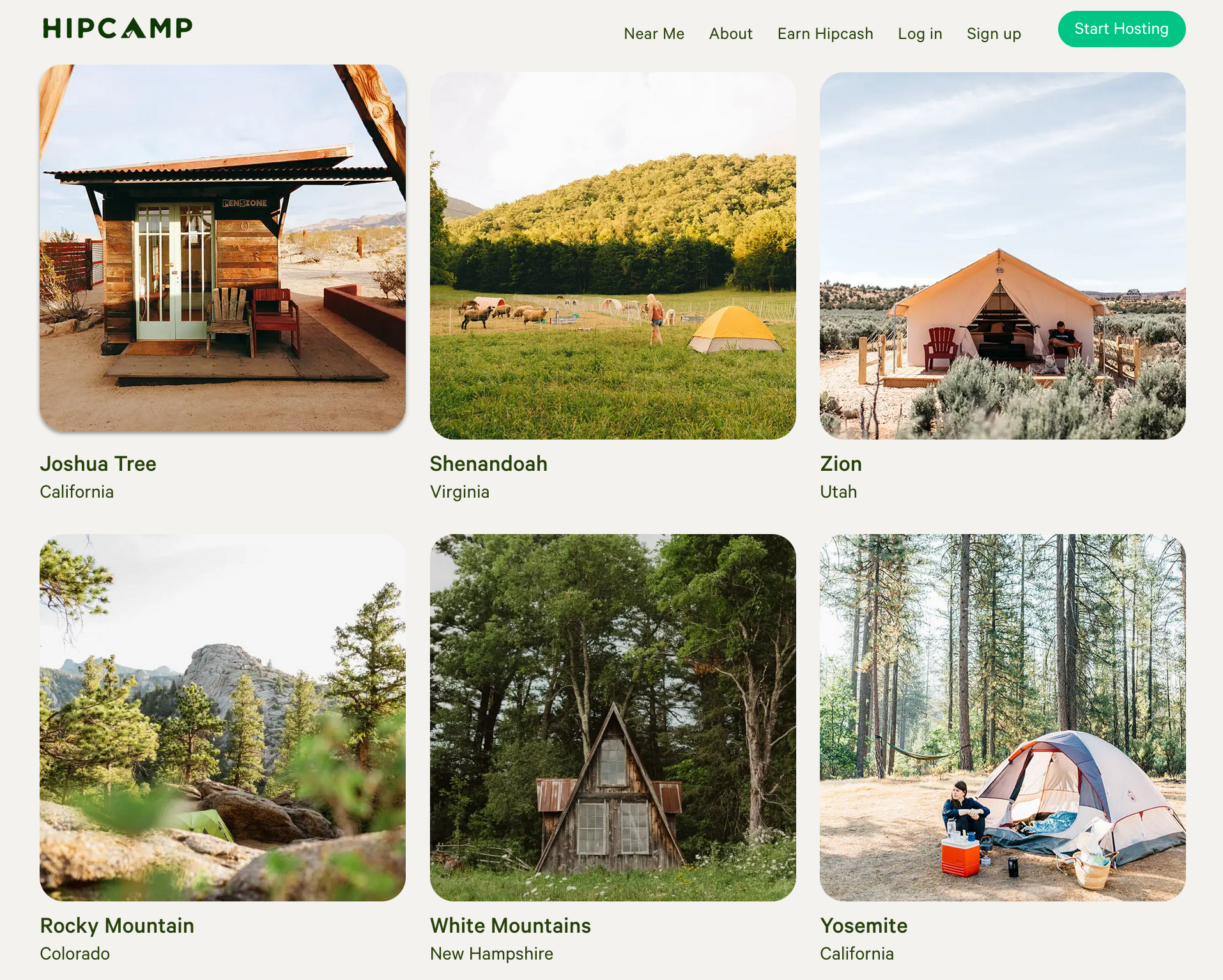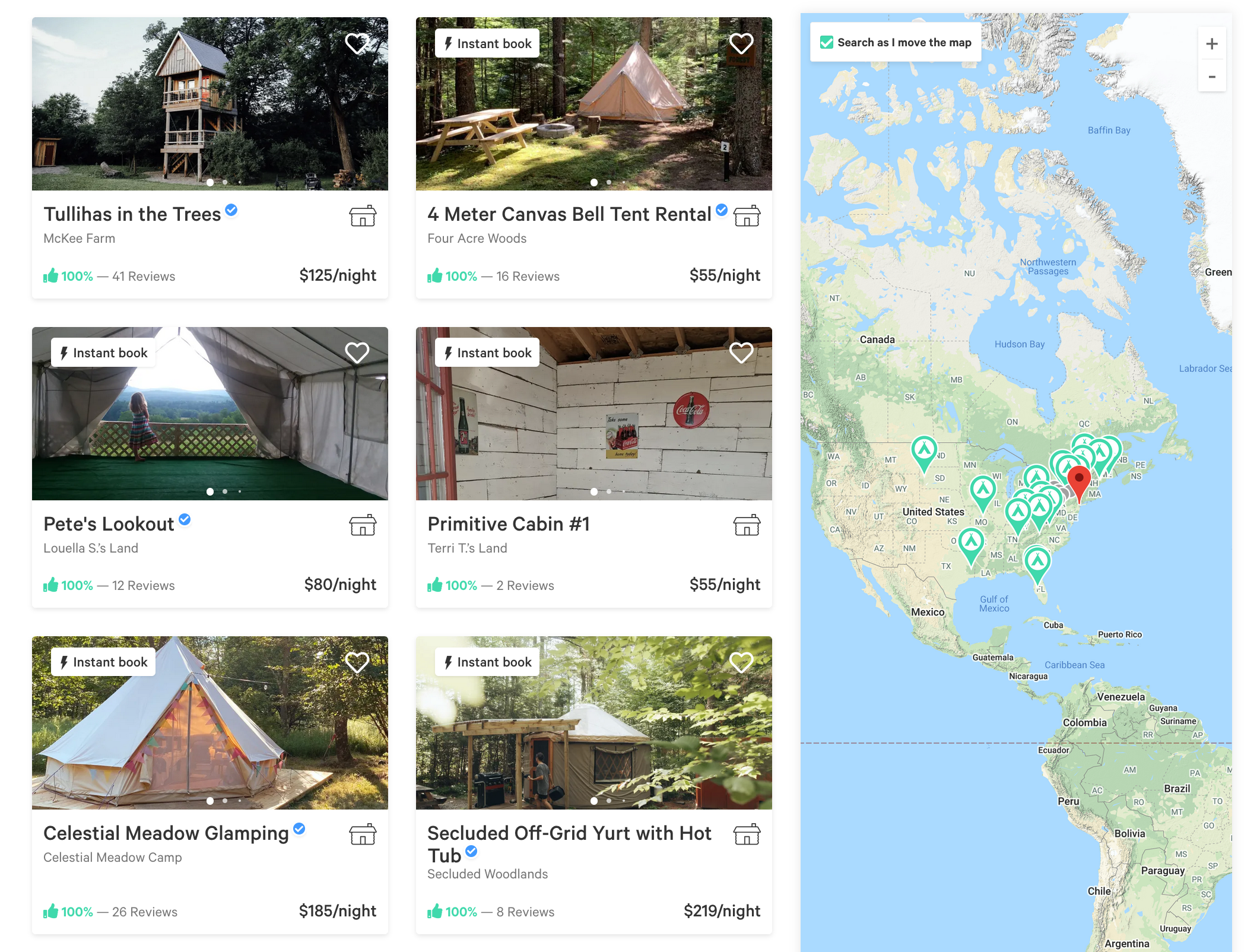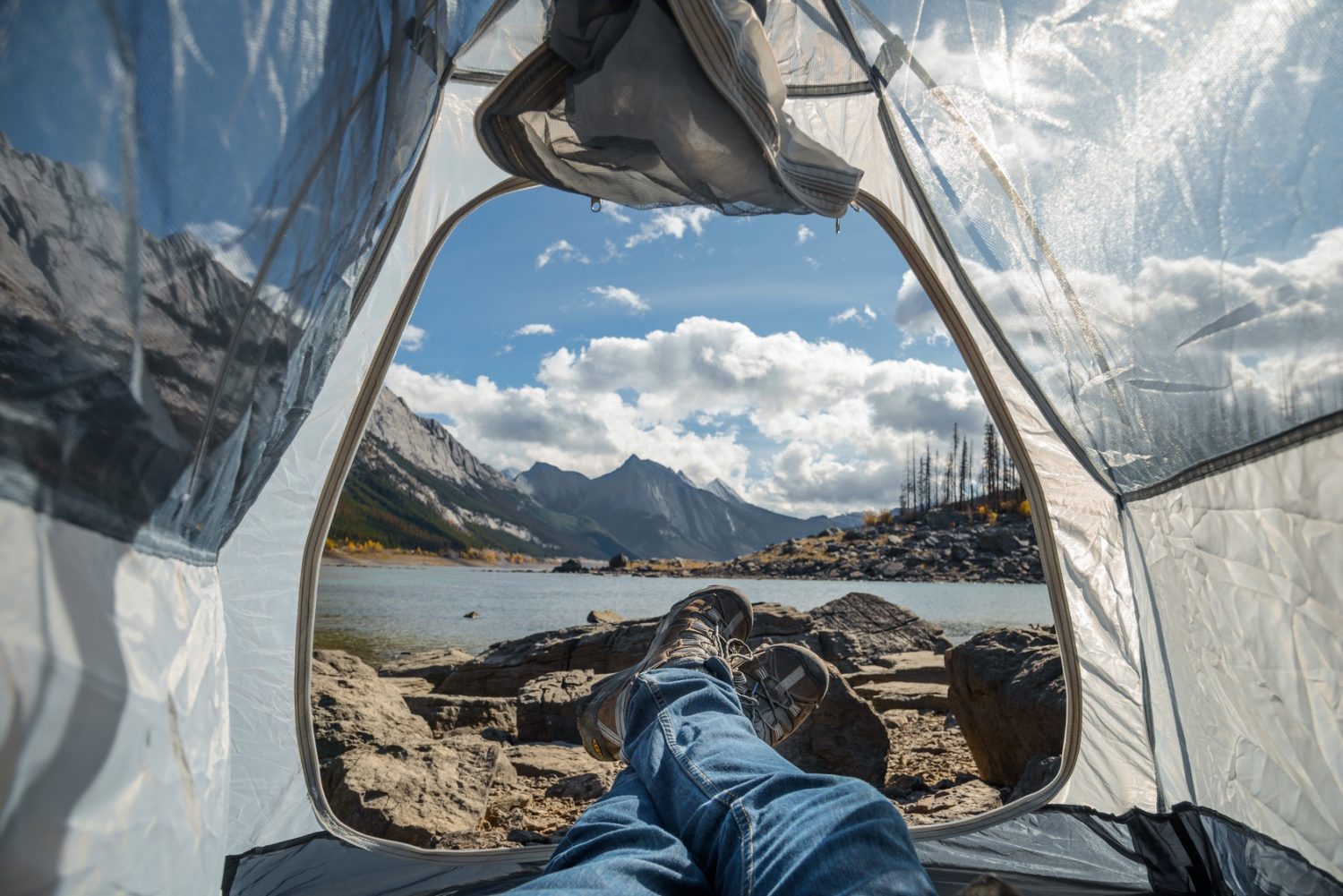Instead of apartments and villas, Hipcamp lets travellers book Airstream trailers, tents, cabins and treehouses on private land across the US and beyond. Olivia Palamountain reports
In a world where every start-up aims to be the new Airbnb or Uber, Hipcamp seems to have smashed it.
In the same way Airbnb connects homeowners with guests, Hipcamp unlocks access to private land for camping and outdoor recreation with its easy to navigate, millennial-friendly user experience, offset by hipster images and aspirational scenes.
A “mission-driven marketplace” where people can list, browse and book campsites and accommodation on private and public land, Hipcamp also drills into the details so nomads know what to expect, whether it’s where to find the best picnic spot or glampsite.
The site has helped people spend three million nights outside, initially in the US only, however, Hipcamp has recently expanded internationally to host Hipcampers across the globe.  The brainchild of founder and CEO Alyssa Ravasio, the Hipcamp story began with this keen surfer’s frustrating attempts at finding and booking a spot on a beach to camp and catch the first sunrise of 2013.
The brainchild of founder and CEO Alyssa Ravasio, the Hipcamp story began with this keen surfer’s frustrating attempts at finding and booking a spot on a beach to camp and catch the first sunrise of 2013.
While she finally found a suitable location, there was no additional information available and she turned up to find out it was an amazing place to catch a wave – but without the right kit.
“When I arrived,” she said, “I found out that even though I’d read so much about this place, I hadn’t learned that it was home to a great surf break. I’m a surfer and hadn’t brought my board!”
This inspired Ravasio to build technology to help people get outside, connect with nature, and find the right spots for them and the service has since grown into the most comprehensive resource for discovering and booking unique outdoor stays on private land.

In line with its “Leave No Trace” ethos, all Hipcampers are required to review and adhere to standards for safety, trip preparation, and respect in order to uphold Hipcamp’s pillar of “leave it better.”
The site also integrates with the US National Weather Service to provide valuable fire advisories to Hosts and Hipcampers, sharing real-time Red Flag Warnings and Fire Weather Watch Warnings.
Interested in joining as a host? The minimum land requirement for a Hipcamp site is generally just two acres. Some listings look like ordinary suburban back yards, but there are also off-grid plots, Airstreams, tree houses, tent camping, RV parks, cabins and glamping available. The concept has clearly resonated with both users and investors – Hipcamp’s recent closure of a US$57 million in Series C funding round brings its internal value to more than US$300 million – over double its value in 2019.
The concept has clearly resonated with both users and investors – Hipcamp’s recent closure of a US$57 million in Series C funding round brings its internal value to more than US$300 million – over double its value in 2019.
As reported by Skift, this massive jump in the valuation of the outdoor bookings business reflects the recent global tourism trend whereby domestic trips in rural locations is driving leisure demand recovery, says GlobalData.
Ralph Hollister, travel and tourism analyst at GlobalData, says: “Many leisure travelers holidayed domestically instead of internationally in 2020. The fact that 11 per cent more consumers stated they would travel less internationally post-Covid-19 (39 per cent) than would travel less domestically (28 per cent) in a survey by GlobalData suggests that, for the short-term at least, Hipcamp and other companies offering outdoor accommodation typically more popular with domestic tourists will be in a strong position to capture returning demand in 2021.”
According to the same GlobalData survey, 79 per cent of global respondents are still
either “quite” or “extremely” concerned about the global outbreak of Covid-19, which means that demand for city breaks or trips to urban areas will remain low for the foreseeable future.
Hollister continues: “Fear of contracting the virus has created a surge in demand
for private and secluded trips away from urban areas, further playing into Hipcamp’s hands during the summer of 2020 as many of its novel types of outdoor accommodation are located in rural areas.
“Due to the uncertainty around when city centers will fully open back up to mass tourism, Hipcamp may continue to benefit and witness rapid growth – just like the company it is now being compared to: Airbnb. However, Hipcamp needs to be careful when embarking upon expansion during a pandemic. The external environment can change extremely quickly and caution has to remain of paramount importance.”
According to a study by QYResearch, the nature tourism (also known as agri-ecotourism) market is worth around US$13 billion globally – and that was before the pandemic, which will no doubt boost demand for spending time in the outdoors.
Indeed, as Globetrender predicted in its report on Travel in the Age of Covid-19, Wilderness Seeking is a big trend in 2021.
Sleeping under the stars (Celestial Escapes) is a trend that Globetrender editor and founder Jenny Southan recently identified for a report she co-authored with Euronews (see below).
In a spin-off article she wrote for Euronews Travel, she said: “In the viral age, a craving for wide-open spaces, as well as a more pronounced desire to understand the meaning of life, will see people drawn to wilderness locations that offer peaceful, contemplative nights under the heavens.”
She added: “With the on-going pandemic not just causing harm to people’s physical wellbeing, it is also inflicting great psychological damage. For many people, the experience will cause long-lasting PTSD (post-traumatic stress disorder).”
Tapping into the growing trend for nature tourism, Yonder is another site offering travellers the chance to book stays in cabins and ranches across the US, as well as outdoor experiences such as horse bonding and mushroom hunting.

